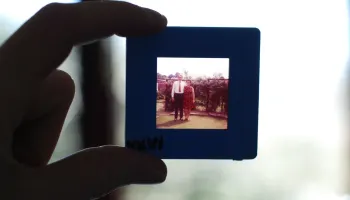Reaching for Healing, Equity, and Permanency

Being separated from birth parents or caretakers via the child welfare system is a traumatic experience for children and youth. Too often, being placed in out of home care means that children lose their connection to everything that is familiar to them; their belongings, neighborhood, friends, school, siblings, family culture and traditions. Research shows that relative/kin placement, which means children living with important adults such as aunties, uncles, grandparents, cousins, god-parents or family friends, can help minimize the trauma and loss associated with being placed in out of home care.
In relative/kin placement, children are placed with familiar adults who may have had major roles in providing care for them prior to their parent or caregivers’ involvement in the child welfare system. For this reason, relative and kin caregivers are often well equipped to both preserve and support children’s developing cultural identity, keep children more closely connected to their family, and foster a sense of belonging for children.
Compared to many other states, Minnesota places more kids with relatives and kin when they have been removed from their parents’ care. National data from 2016 shows that 32% of all children in foster care resided in a relative’s home. Recently, Minnesota has dramatically increased efforts to identify, notify, and place children and youth with their relatives and kin; with 49.85% of children in out of home care having been placed with a relative or kin in 2017, up 8% from 2015. But the fact remains that 50.15% of children in out of home care are placed in non-relative homes or in residential facilities such as group homes, correctional facilities, or residential treatment centers, with adults whom they have no pre-existing relationship.
We know that in many of these cases, the children have relatives or kin with whom they have a pre-existing relationship, and who would like to be considered as a possible placement for them. We also know that many of these potential families have been “screened out” or turned down by the child’s home county or tribe without having received a fair or full assessment, and/or without being notified of their right to request variances or reconsideration in the foster care licensing process. In other cases, relatives have not been contacted or are contacted after the child has already been placed in non-relative care for months or years.
It is well-established that inequity and unequal access to critical community resources, systemic racism and institutional bias in the child welfare system result in families of color being disproportionately impacted by the child welfare system and out of home placement. The contributing factors are many, but the result is unequivocal – children and families of color and indigenous families face barriers and unfair bias at virtually every point in their interactions with the child welfare system.
Ampersand Families highly values providing all families with an equitable and culturally-sensitive home study assessment process. We support and advocate for families in an ongoing way, while supporting a youth’s connections to their family, kin, community and culture. It’s the basis of our agency’s name – adding committed, loving adults to a youth’s life rather than taking irreplaceable people away. It is a primary focus of our child-specific recruitment efforts when a county or tribe refers a youth to us.
Over the past two years, we have significantly increased our work with relative and kin families, and we expect this to continue. One of our goals is to reduce the adversarial nature of the child protection experience and to restore belonging, dignity and hope for youth, relatives, kin, birth parents, and adoptive parents throughout the process. We have now worked with relatives and kin from several counties, and have found many counties to be responsive to our involvement. We look forward to continuing on this trajectory.
We Found These Links to be Useful and Relevant to this Topic
- MN Department of Human Services – Basics for Relatives of Foster Children
- MN Department of Human Services – Children in Foster Care: Using Relative Visits and Alternative Child Care Arrangements
- MN Department of Human Services – Relative Permanency Services: Reducing Time in Foster Care
- MN Statutes – Relative Search
- MN Department of Human Services – Out-of-Home Care and Permanency Report, 2017
- MN Department of Human Services – Out-of-Home Care and Permanency Report, 2015
- Children’s Bureau – Working with Kinship Caregivers
Contact Ampersand Families
For more information on our services for birth parents, relatives, and kin.





